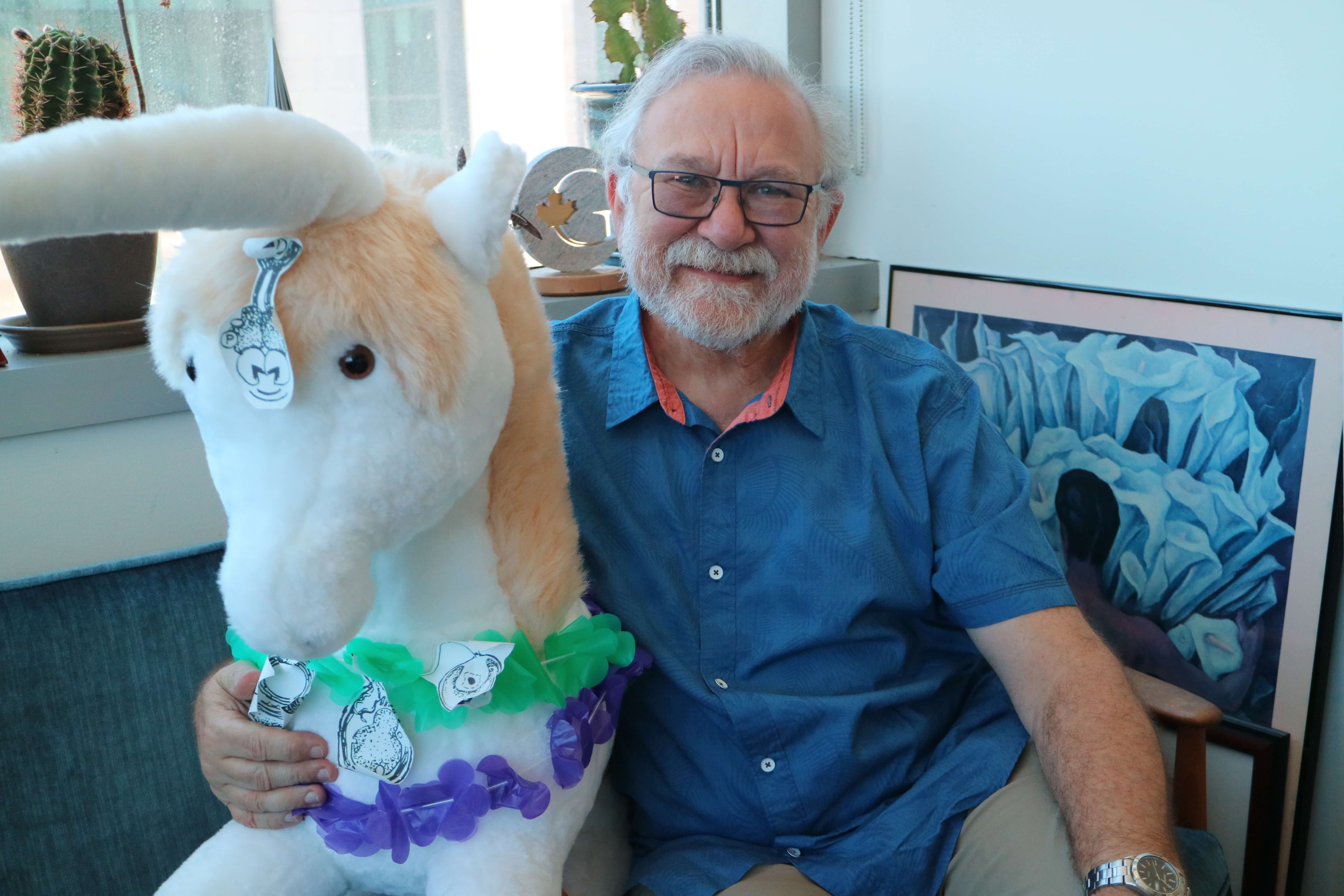
Interview with Peter Walter by Alexa Rocourt
Q: In a couple sentences, tell me about what you do in your work.
We explore how cells control the quality of the proteins they produce, and how protein quality control affects general health, aging and diseases like neurodegeneration and cancer. Cancer cells for example make a lot of mistakes, due to the vast number of mutations that they accumulate and that allow them to grow in places where they shouldn’t be growing. Since their evolution is not a directed process, they make many defective proteins in the process that need to be buffered, so that they do not become a menace to the cell. We explore ways of modulating these buffering pathways to hinder cell-protective responses in cancer cells to trigger their death.
Q: What’s your favorite part about being a scientist?
Discovery, The Unknown… Walking down the meandering path of discovery, which is never linear, and finding amazing things that we had no idea would be out there.
Q: What have you created or discovered that you are most proud of or excited about?
We are most excited about the evolution of our research program, which started with very basic explorations and which now touch numerous human diseases. The project evolved great potential to deliver tangible benefits for humankind.
Q: At the end of the day, why does your work matter?
First, my largest personal reward derives from the people I’ve trained in the lab being successful; they carry the heritage of our work and philosophy into the future. Second, I’m proud that we have created another wonderful example that basic research has profound societal benefits, i.e., translational research follows discovery, and not vice versa. In this way, we start out with new knowledge and then strategically ask where it is relevant and can be best applied in disease settings. The main message in this, I believe, may be larger than the actual discoveries themselves.
Q: Outside of work, what do you do to relax?
I do woodworking and metal sculpture. Rather than sitting all day in front of the computer, I like to work with my hands also. It’s incredibly rewarding when you accomplish things yourself and be creative. Lately I’ve been making some mechanical devices out of wood. When my daughter got married I built her a clock, entirely made out of wood and wooden gears. It didn’t run right away but now it works reliably and keeps time. It was great fun. One never finds time to relax though — one has to take it.
Q: What situation do you think you’d feel the most out-of-place in? What is something that makes you uncomfortable?
It used to be dancing and theatrical expressions, but then I went through a period of cancer treatment and after that, the fear that everybody-is-watching-you was gone. Now I enjoy it.
Q: In 100 years, what do you want to be remembered for?
Having been a good mentor and having made some basic discoveries that actually lived on and provided the basis for more discovery to be made. In other words, that our papers make impacting and lasting contributions to the foundation of knowledge. I think we have a couple of those gems.